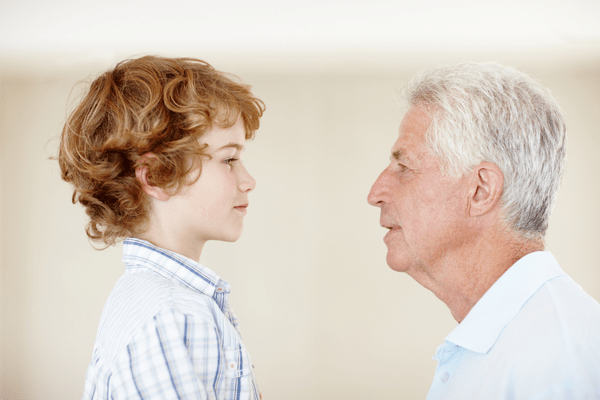You can sign up to our LinkedIn newsletter here.
From the research that The World Health Organization (WHO) Global Report on Ageism drew upon, there is a very useful catalogue of different stereotypes, based upon different institutional settings that are represented across different countries.
A Case Study in Health and Social Care
In health and social care, WHO recognises positive stereotypes of younger people who are seen as healthy, physically active, strong and energetic.
Whereas the positive stereotypes of older people are warm and likable.
The negative stereotypes of younger people are they are risk takers, drug users, stressed and anxious. Whereas for older people the negative stereotypes are rigid, irritable and frustrating, lonely and isolated, frail and weak, asexual, easily confused, depressed and depressing, needy and disabled.
Let’s recognize the power of stereotypes. Stereotypes are adopted mindsets that are likely to influence language, prejudice people’s emotions and underpin discriminatory behaviours and actions. Stereotypes maybe institutionalised and reflected in policies or procedures. They may be interpersonal and reflected in culture. They become self-directed so that the beneficiaries of health and social care, the people the institution is seeking to serve. are gas lighted to adopt and take on these stereotypes.
But Stereotypes are True!
Whether stereotypes are true or not is the wrong debate.
It may be true that as a matter of generalisation younger people are more often healthy, physically active, strong and energetic. But that positive stereotype may mean that practitioners overlook the needs of younger people who are less healthy, less physically active, less strong and energetic. They underestimate the number of younger people who are coach potatoes, suffering from the risks of obesity or are depressive.
Similarly, they may overestimate the the level of risk taking and drug use and the level of stress and anxiety in the younger population.
But even that is not the real challenge of stereotypes.
The real challenge from stereotypes is we make assumptions. We don’t individualize our response to people. We don’t engage with people as they show up and respond to their felt and actual needs, their felt and actual strengths. We assume. And we’ve seen how powerful this has been in relation to racism which has limited access to health and social care and resulted inappropriate mental health responses, particularly for black people. There can be a whole range of areas where for younger people, healthcare responses are inappropriate.
A simple but pervasive example is the lack of clinical trials addressing the different doses appropriate to individuals of different ages. In the UK, the Teenage Cancer Trust has actively campaigned for age appropriate responses for younger cancer sufferers.
Let’s look at the other side of the coin and how those stereotypes impact older people.
Warm and likable – a positive stereotype – can easily be translated into assuming that they will be compliant and forgiving.
At the other end of the age spectrum, if we assume that older people are frail and weak then we may not encourage them to continue to maintain the mobility they have. Ironically, this can make them more vulnerable to falling and increase the damage that a fall will do. Now they become more fearful of walking about which further reduces their mobility. We start making assumptions about the options that we could offer them. We bias our responses in the treatment and social care we create and we can end up being very patronizing about their needs.
In a society which is aging, these stereotypes can have a profound impact on the health and well-being of older people.
In a society in which younger people have a diversity of needs, these stereotypes risk misidentifying them and pushing them down care pathways that are unhelpful.
In a rare example of the UK’s Equalities Human Rights Commission addressing an issue of ageism, their October 2020 report “How coronavirus has effected equality and human rights” notes: “The coronavirus has had a devastating impact on older and disabled people, particularly older people living in care homes. At least 40% of COVID19 deaths were accounted for by care home residents” but disappointingly none of their recommendations address the ageism that permitted policy decisions that discharged hospital patients to care homes without regard for social isolation disciplines imposed on the rest of the population.
Conclusions
Awareness of racial, religious and gender stereotypes is increasing. We still have major issues with ensuring health and social care responds appropriately to actual needs rather than the ageist stereotypes that abound. Getting this wrong can be fatal!

Charles McLachlan is the founder of FuturePerfect and on a mission to transform the future of work and business. The Portfolio Executive programme is a new initiative to help executives build a sustainable and impactful second-half-career. Creating an alternative future takes imagination, design, organisation and many other thinking skills. Charles is happy to lend them to you.
